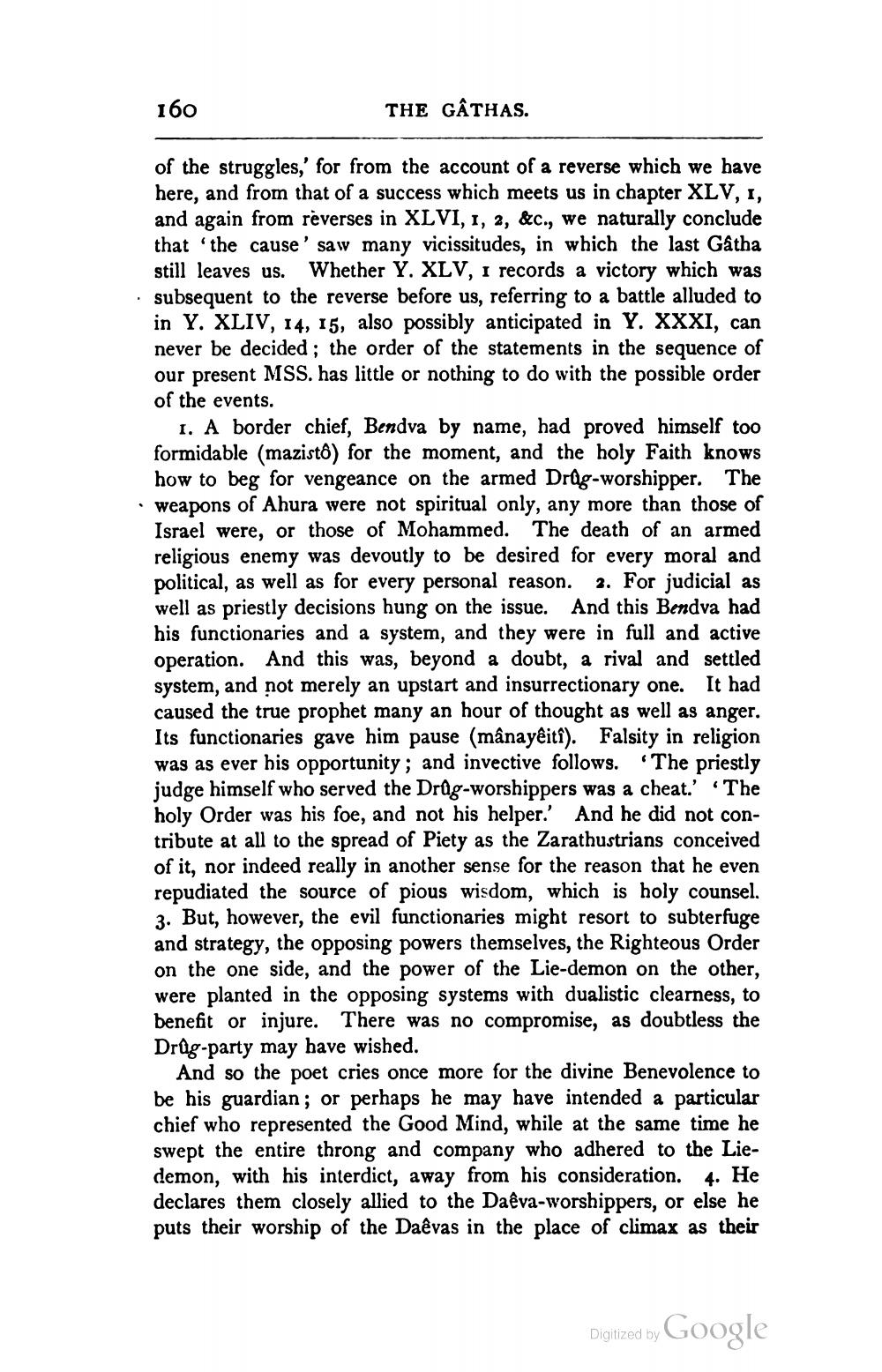________________
160
THE GÂTHAS.
of the struggles,' for from the account of a reverse which we have here, and from that of a success which meets us in chapter XLV, 1, and again from reverses in XLVI, 1, 2, &c., we naturally conclude that 'the cause' saw many vicissitudes, in which the last Gatha still leaves us. Whether Y. XLV, I records a victory which was subsequent to the reverse before us, referring to a battle alluded to in Y. XLIV, 14, 15, also possibly anticipated in Y. XXXI, can never be decided; the order of the statements in the sequence of our present MSS. has little or nothing to do with the possible order of the events.
1. A border chief, Bendva by name, had proved himself too formidable (mazisto) for the moment, and the holy Faith knows how to beg for vengeance on the armed Drag-worshipper. The weapons of Ahura were not spiritual only, any more than those of Israel were, or those of Mohammed. The death of an armed religious enemy was devoutly to be desired for every moral and political, as well as for every personal reason. 2. For judicial as well as priestly decisions hung on the issue. And this Bendva had his functionaries and a system, and they were in full and active operation. And this was, beyond a doubt, a rival and settled system, and not merely an upstart and insurrectionary one. It had caused the true prophet many an hour of thought as well as anger. Its functionaries gave him pause (mânayêitî). Falsity in religion was as ever his opportunity; and invective follows. The priestly judge himself who served the Drûg-worshippers was a cheat.' The holy Order was his foe, and not his helper.' And he did not contribute at all to the spread of Piety as the Zarathustrians conceived of it, nor indeed really in another sense for the reason that he even repudiated the source of pious wisdom, which is holy counsel. 3. But, however, the evil functionaries might resort to subterfuge and strategy, the opposing powers themselves, the Righteous Order on the one side, and the power of the Lie-demon on the other, were planted in the opposing systems with dualistic clearness, to benefit or injure. There was no compromise, as doubtless the Drug-party may have wished.
And so the poet cries once more for the divine Benevolence to be his guardian; or perhaps he may have intended a particular chief who represented the Good Mind, while at the same time he swept the entire throng and company who adhered to the Liedemon, with his interdict, away from his consideration. 4. He declares them closely allied to the Daêva-worshippers, or else he puts their worship of the Daêvas in the place of climax as their
Digitized by
Digitized by Google




